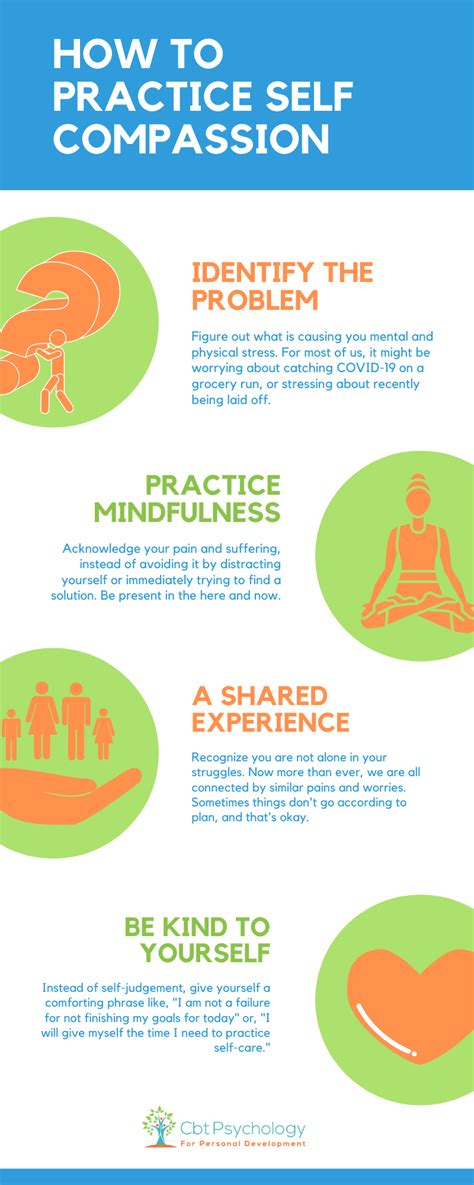How to Practice Self-Compassion and Improve Your Well-Being

In today's fast-paced, achievement-oriented world, many of us are our own harshest critics. We push ourselves relentlessly, striving for perfection, and often beat ourselves up over mistakes, failures, or shortcomings. While this drive for success can be motivating, it can also contribute to stress, anxiety, and poor mental health. This is where self-compassion comes in—an essential practice that can help you break the cycle of self-criticism and improve your overall well-being.
Self-compassion is the practice of treating yourself with the same kindness, understanding, and patience that you would offer a good friend in times of difficulty. It involves embracing your flaws, acknowledging your suffering without judgment, and offering yourself care and support when things go wrong. Research has shown that self-compassion is linked to greater emotional resilience, better mental health, and enhanced well-being.
So, how can you practice self-compassion in your daily life? Here are several strategies to get started:
Acknowledge Your Feelings Without Judgment
One of the first steps in practicing self-compassion is to acknowledge and accept your emotions without judgment. Often, when we experience negative emotions like sadness, guilt, or frustration, we try to suppress or avoid them. This can create a cycle of emotional tension and stress.
Instead of criticizing yourself for feeling "weak" or "flawed," allow yourself to experience your emotions fully. Recognize that feeling down, anxious, or upset is a natural part of being human. You don’t need to be perfect, and it’s okay to feel vulnerable. By accepting your emotions without judgment, you create space for healing and growth.
Use Self-Compassionate Language
The way you speak to yourself can have a significant impact on how you feel and how you approach challenges. Self-compassionate language is gentle, supportive, and understanding. When you make a mistake or experience a setback, try to avoid harsh self-criticism. Instead of saying, "I'm such a failure," or "I can't do anything right," try saying something like, "I'm going through a tough time right now, but this is part of being human. I can learn from this and do better next time."
The language we use influences how we perceive ourselves and our experiences. Shifting from self-criticism to self-compassionate language helps you view difficulties with more empathy and kindness, which can reduce stress and improve your mental outlook.
Practice Mindfulness
Mindfulness—the practice of being fully present and aware of the current moment—is a key component of self-compassion. When you’re mindful, you observe your thoughts and feelings without becoming overwhelmed or consumed by them. This helps you recognize when you're being self-critical or judgmental, and allows you to pause and shift toward a more compassionate perspective.
To practice mindfulness, try simple exercises like focusing on your breath, noticing the sensations in your body, or observing your thoughts without judgment. Even just a few minutes of mindfulness each day can help you develop a greater sense of self-awareness and self-acceptance.
Offer Yourself Comfort and Care
When you're going through a difficult time, it’s natural to seek support from others. But it’s equally important to offer yourself the same care and comfort you would give to a loved one. This can involve simple actions, like taking a warm bath, listening to soothing music, or engaging in activities that help you relax and recharge.
You can also engage in self-compassionate touch. This could be placing a hand on your heart, hugging yourself, or gently rubbing your arms as a way to soothe yourself. Physical touch can activate the body’s parasympathetic nervous system, helping you feel calmer and more grounded.
Understand That Imperfection Is Part of Being Human
One of the most important aspects of self-compassion is recognizing that being human means being imperfect. None of us are immune to failure, mistakes, or setbacks. We all experience moments of difficulty and vulnerability. Rather than seeing these moments as a reflection of your worth or competence, try to view them as a normal part of life.
Remember, self-compassion is not about excusing poor behavior or avoiding accountability. It’s about accepting that imperfection is natural, and that you can learn and grow from your challenges. By embracing your imperfections, you can cultivate greater self-acceptance and build emotional resilience.
Cultivate Self-Compassionate Practices
Incorporating self-compassion into your daily routine can have long-lasting benefits for your mental and emotional well-being. Some practices you can try include:
- Loving-kindness meditation: A practice where you send thoughts of compassion and well-wishing to yourself and others.
- Gratitude journaling: Focusing on what you're thankful for each day can shift your perspective and enhance feelings of self-worth.
- Affirmations: Positive affirmations can help counteract negative self-talk and reinforce your self-compassionate mindset.
Incorporating these practices into your daily life can create a solid foundation for greater self-compassion and overall well-being.
Seek Professional Support When Needed
While self-compassion can be incredibly healing, it’s important to recognize that you don’t have to navigate difficult emotions and experiences alone. If you find yourself struggling with deep feelings of shame, guilt, or anxiety, or if you feel stuck in a cycle of self-criticism, it might be helpful to seek support from a therapist or counselor.
A mental health professional can help you explore the root causes of your negative self-talk and guide you in developing healthier coping strategies. Therapy can also provide a safe space for you to practice self-compassion and work through past wounds with the help of an empathetic guide.